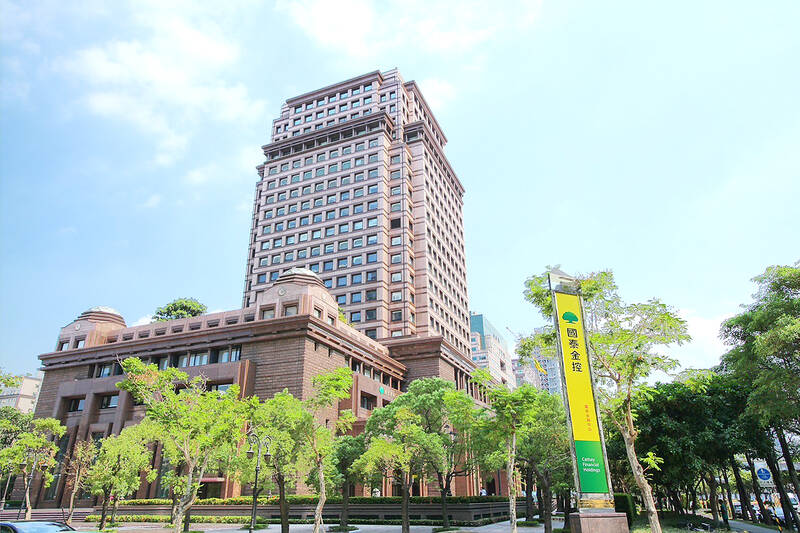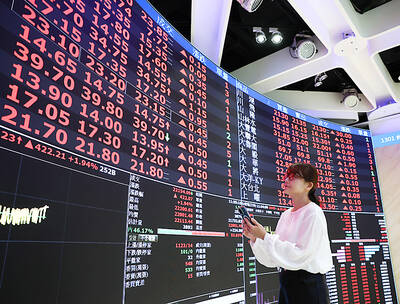Cathay United Bank (國泰世華銀行), a long-standing advocate for energy transition, was crowned Best Bank for Sustainable Finance at the ESG Investing Awards by Global Markets Media.
The Bank outperformed prominent global contenders such as Morgan Stanley, TD Bank Group and the Bank of Nova Scotia to be named the winner — the only Asian enterprise to claim such a title.
As the top sustainable finance brand in Taiwan, Cathay United Bank bases its energy transition policy on the low-carbon economic blueprint and the environmental sustainability blueprint — covering Scope 1 to 3 emissions and the use of renewable energy — fully supporting Earth Day’s 2025 theme of “Our Power, Our Planet.”

Photo courtesy of Cathay United Bank
In addition to being the first in Taiwan’s financial sector to complete the energy transition of its head office in 2022, the bank has been paving the way toward sustainability, providing financial solutions to all customers and stakeholders in pursuit of net zero carbon emissions.
Cathay United Bank said that instead of viewing sustainable transition as a risk, it should be regarded as a positive force that drives business growth and transformation, while enhancing the risk resilience of businesses.
The bank introduced several innovations during its commitment to sustainable development, such as promoting internal carbon pricing for internal energy transition and empowering employees to engage in their companies’ transition through sustainability performance-linked payroll services.
With many companies inspired, the bank is increasingly focused on transition strategies in its planning, aiming to create mutually beneficial long-term value for stakeholders.
To share its experience and explore sustainable transition solutions with its partners, Cathay United Bank has established diverse collaboration models.
For example, the bank teamed up with the CDP, an international nonprofit that helps companies disclose their environmental impact, to assist customers in understanding the importance of net zero emissions and impact management.
Last year, thanks to the efforts of experts and the bank’s staff, 121 among 150 companies invited by the bank obtained CDP scores, with the response rate of the CDP questionnaire exceeding 80 percent — high above the global supply chain’s average of 50 percent.
The bank also held forums and workshops with reputed organizations to share knowledge on achieving sustainable transition.
Cathay United Bank also engaged with the Metal Industries Research and Development Center, Taiwan’s first carbon footprint verification agency, to accelerate its net zero transition by offering businesses transition technologies.
The bank has also created engagement models tailored to customers’ industry type, business scale, carbon emission levels, and environmental, social and governance development progress, aiming to enhance customers’ ability to implement net zero transition.
At the same time, Cathay United Bank continues to provide sustainability-linked loans, green deposits, sustainability performance-linked payroll services, and sustainable finance partnerships with small and medium-sized enterprises. By offering technical and capital support, the bank assists customers in achieving their sustainability goals.
Aside from achieving PAS 2060 certification for its head office and three green branches last year, Cathay United Bank further exemplified its role as a “green” landlord by signing a Corporate Power Purchase Agreement. The agreement offers lessees with the option of renewable energy and marks another step toward sustainability.
Looking ahead, the bank remains committed to the idea of “Our Power, Our Planet,” and aspires to wield its influence to bring together employees, customers and stakeholders in the pursuit of net zero emissions — building a sustainable tomorrow.

UNCERTAINTIES: Exports surged 34.1% and private investment grew 7.03% to outpace expectations in the first half, although US tariffs could stall momentum The Chung-Hua Institution for Economic Research (CIER, 中華經濟研究院) yesterday raised its GDP growth forecast to 3.05 percent this year on a robust first-half performance, but warned that US tariff threats and external uncertainty could stall momentum in the second half of the year. “The first half proved exceptionally strong, allowing room for optimism,” CIER president Lien Hsien-ming (連賢明) said. “But the growth momentum may slow moving forward due to US tariffs.” The tariff threat poses definite downside risks, although the scale of the impact remains unclear given the unpredictability of US President Donald Trump’s policies, Lien said. Despite the headwinds, Taiwan is likely

When Lika Megreladze was a child, life in her native western Georgian region of Guria revolved around tea. Her mother worked for decades as a scientist at the Soviet Union’s Institute of Tea and Subtropical Crops in the village of Anaseuli, Georgia, perfecting cultivation methods for a Georgian tea industry that supplied the bulk of the vast communist state’s brews. “When I was a child, this was only my mum’s workplace. Only later I realized that it was something big,” she said. Now, the institute lies abandoned. Yellowed papers are strewn around its decaying corridors, and a statue of Soviet founder Vladimir Lenin

READY TO BUY: Shortly after Nvidia announced the approval, Chinese firms scrambled to order the H20 GPUs, which the company must send to the US government for approval Nvidia Corp chief executive officer Jensen Huang (黃仁勳) late on Monday said the technology giant has won approval from US President Donald Trump’s administration to sell its advanced H20 graphics processing units (GPUs) used to develop artificial intelligence (AI) to China. The news came in a company blog post late on Monday and Huang also spoke about the coup on China’s state-run China Global Television Network in remarks shown on X. “The US government has assured Nvidia that licenses will be granted, and Nvidia hopes to start deliveries soon,” the post said. “Today, I’m announcing that the US government has approved for us

The National Stabilization Fund (NSF, 國安基金) is to continue supporting local shares, as uncertainties in international politics and the economy could affect Taiwanese industries’ global deployment and corporate profits, as well as affect stock movement and investor confidence, the Ministry of Finance said in a statement yesterday. The NT$500 billion (US$17.1 billion) fund would remain active in the stock market as the US’ tariff measures have not yet been fully finalized, which would drive international capital flows and global supply chain restructuring, the ministry said after the a meeting of the fund’s steering committee. Along with ongoing geopolitical risks and an unfavorable